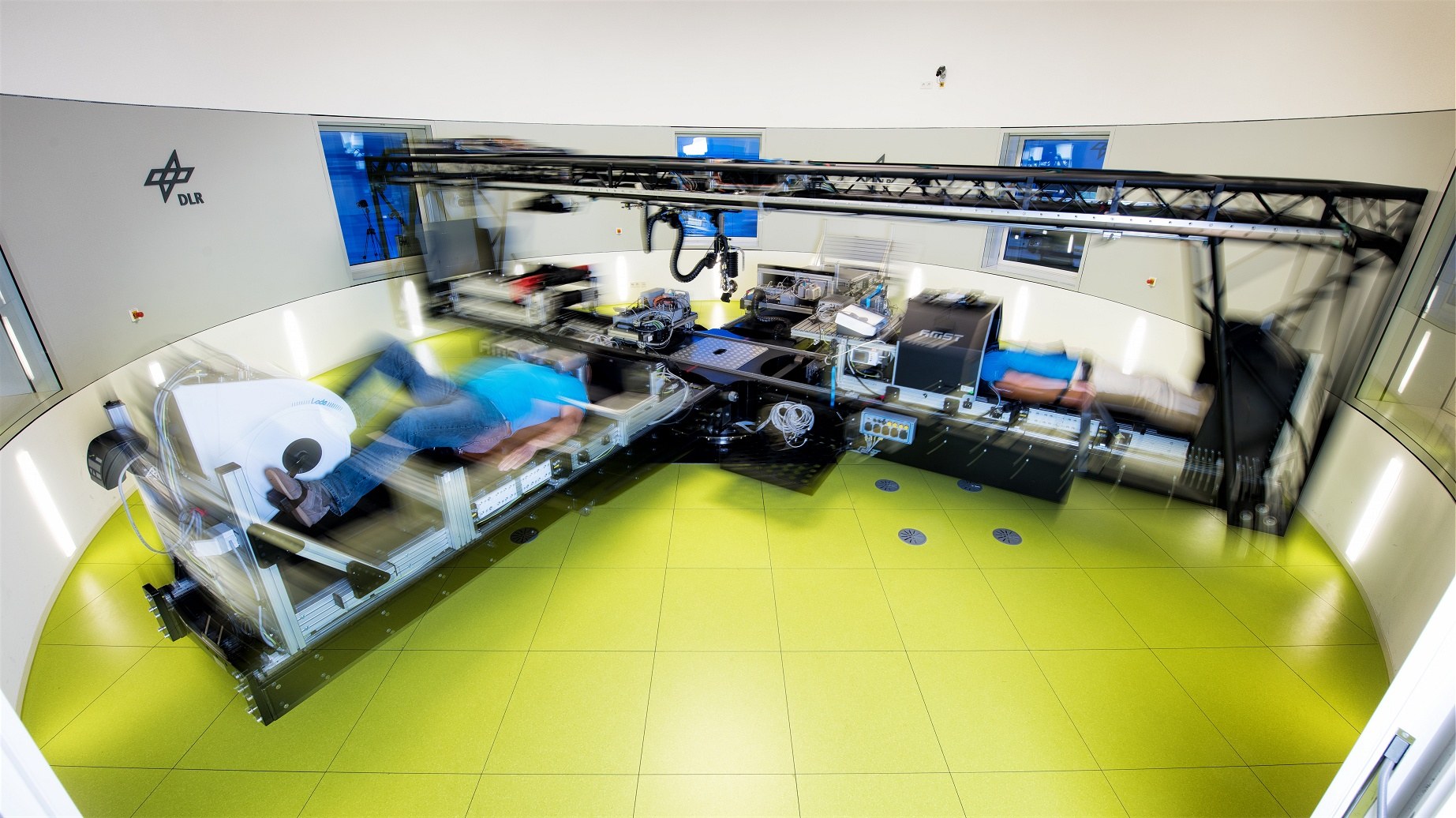Muscle and Bone Metabolism

On the one hand, the human body is capable of outstanding performance, and on the other hand, prolonged physical inactivity leads to functional impairment of the skeletal and muscular system (deconditioning), metabolic disorders such as obesity and insulin resistance, and an increased risk of heart disease. These processes are not only problematic on Earth, but especially during space travel.
The department ‘Muscle and Bone Metabolism’ tries to identify the mechanisms of physical degradation processes at an early stage, to better understand them, and to develop appropriate countermeasures. Research into the biomechanics and mechanophysiology of muscles and bones is crucial to understanding the physiological effects of muscle contractions and physical activity. In-depth analyzes of organ-specific metabolism and its systemic interactions as well as the combination of this knowledge with genetic models form the basis for targeted interventions. Non-invasive methods and examinations, including on old people and patients, help to distinguish the proportion of immobilization-related changes from those primarily caused by age or illness.
From the knowledge gained, we derive countermeasures in the area of physical training and nutrition in order to maintain the physical fitness of astronauts but also to improve the health and quality of life of people in old age and people with various medical conditions. Our research follows a translational approach that extends from the cellular to the organismic level.
Working group
Translational metabolism research (Prof. Dr. rer. nat. Dominik Pesta)
- Clinical and translational aspects of energy metabolism, tissue-specific mitochondrial function, euglycemic-hyperinsulinemic clamp test, biospecimen management
- Studies on the effect of changed gravity conditions (e.g. short-arm centrifugation) on performance and trainability
Teams
Mechanophysiology (Prof. Dr. med. Jörn Rittweger)
- Biomechanical testing, tissue mechanics modeling, technology development, data management
Training and countermeasures (PD Dr. rer. nat. Jochen Zange)
- Training studies, musculoskeletal imaging, development of training countermeasures
